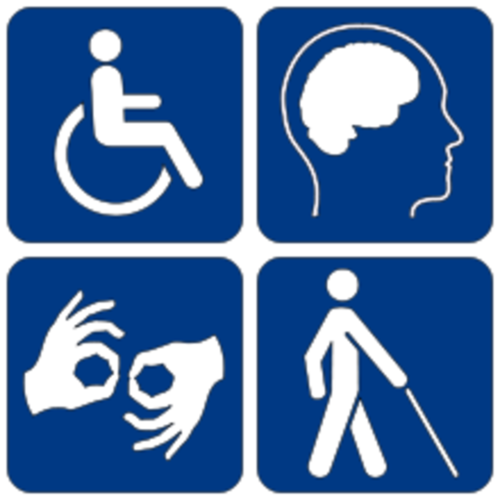
We pet owners strive to provide our paw friends with a high quality of life and keep them healthy and full of energy. Playing and investigating new objects and surroundings is a favorite activity of dogs along with eating and sleeping. When we notice that our beloved friend is not as active as usual and seems to be rather lethargic, we may worry about their health condition.
In this article we will let you know more about lethargy in dogs, its causes, when we can wait or take action ourselves and when we should consult a professional.
What Is Lethargy and How to Determine Its Symptoms?
First, you need to differentiate the state of relaxation and the state of lethargy. Every dog needs quality time to rest and relax, especially if he/she is a service dog and needs to stay focused on his/her handler all day long fulfilling specific tasks.
Moreover, it is typical for older dogs to become slower and loose the excitement that they previously had. There is also a risk for them to develop arthritis. Since lethargy is a natural state, accompanying the process of getting old, you can only help your dog to enter this state calmly and enjoy his/her retirement years. If you are not sure how to do it, you can consult a veterinarian.
If you notice that your furry friend is exhausted, has lost interest in the activities he/she usually enjoys, does not respond to sensory stimulation and has lost appetite, he/she may deal with lethargy due to health or emotional issues. In this case, you need to observe closely the behavior of your paw friend and determine if there are additional symptoms like:
general weakness, breathing issues, pain, shaking, digestive disorders or behavioral abnormalities.
The presence of additional symptoms may be a sign of a health condition that requires a veterinary appointment.

What May Cause Lethargy?
We can divide the causes of lethargy into health-related factors, intoxication and emotional factors.
Health-related factors
Your canine may deal with health conditions like:
hypoglycemia, hypothermia, digestive issues, infection, anemia, skin illness, nutritional deficiency, exposure to toxic substances, respiratory illness and even more serious conditions like cancer, hearth illness, diabetes or tumors.
If the cause for lethargy is a health condition, additional symptoms are likely to be present, i.e.: vomiting or loss of appetite. If you suspect that your dog may suffer from a health disease, you need to contact a veterinarian immediately. Fortunately in some cases, your dog is likely to recover after a day or two and the cause is not serious. However, examination and proper tests can always help a medical professional to diagnose accurately an eventual issue. Lethargy related to health issues may also occur after your furry has consumed certain human medication, considered dangerous for dogs or as a side effect of dog’s medication. Some examples of human medicaments that you need to keep away from your canine, as they can be extremely dangerous for him/her are:
• Nonsteroidal anti-inflammatory drugs (NSAIDs) like Aspirin, Ibuprofen, Indomethacin, Advil and Naproxen;
• Antidepressants like Cymbalta, Prozac, Effexor, Lexapro;
• Acetaminophen/Tylenol;
• Sleep medication and Benzodiazepines like Xanax, Lunesta, Klonopin, Ambien,;
• ADD/ADHD medications like Ritalin, Concerta, Adderall;
• Birth control medication like Estrogen, Progesterone, Estradiol.
Intoxication
If you live in a house you are likely to take care of your yard and store fertilizers and detergents in your house or in your garage. If these are easy to access or your dog is quite inquisitive he/she may try to investigate the environment and eventually reach them. You need to lock up and store in a safe place any kind of supplies and medication that are potentially dangerous for your dog.
Not only medication, but also human food can lead to health issues and intoxication in your dog. For more information about healthy human food that can harm your dog, you can click here.
While outside on a walk, your furry friend may have ingested a non-edible object or have gotten intoxicated when eating sprayed grass.
Lethargy caused by health-related factors and intoxication needs to be diagnosed as soon as possible so that complications can be avoided. We would recommend that you arrange a veterinarian visit at your earliest convenience if you think that the health of your dog is at risk.
Lethargy can be caused by emotional factors as well.
Emotional factors
1. Separation anxiety/a beloved person passed away
Separation anxiety is a common problem that can occur in pets when their beloved person passes away or is not at home for a long time. Especially dogs who tend to create a strong bond with their handlers/owners can find it difficult to overcome the feeling of sadness and anxiety. Lethargy and fatigue may be noticed. If you tend to travel a lot and your dog needs to stay at home alone or with another family member, he/she may show signs of separation anxiety and lethargy. The sooner you recognize these signs in his/her behavior the more accurate actions you will be able to take.
If you think that this is the case, you need to train your dog to cope with your absence. You should train him/her to get used to your absence gradually and you need to start with short steps i.e. you can go outside the room for a few minutes only. Step by step you can increase the duration.
Fortunately there are also some simple techniques, that have been used successfully by handlers whose dogs deal with such emotional issues:
• massaging the dog gently;
• using essential oils;
• playing classical music;
• wrapping him/her in a warm blanket or your T-shirt
2. New Home or Rearranging at home
Have you moved to a new home recently? Or maybe you have relocated the bed of your dog at home?
Some pets are sensitive to any changes at home and these may lead to lethargy.
Your furry friend may need a few days to adapt to the new place. You may want to provide him/her with an own space in the new home with a good view where he/she will feel safe and relaxed. The same approach is valid for the first situation- if you decide to relocate the bed of your dog, try to find a suitable place, without a direct air flow, with a moderate temperature. However, after several days your paw friend should have already adapted and feel like themselves again. If you notice that the state of lethargy continues, you may check with a veterinarian about the possible reasons.
3. Fear
When feeling afraid of a person, an object, or a place, dogs may show signs of lethargy. Triggers that may lead to lethargy can be loud noises caused by fireworks, thunders, or very loud vehicles. You should avoid places with very loud noises when going for a walk with your dog. If your furry friend feels very anxious and seems to be afraid in the presence of a person, you should introduce them to your dog gradually. Try to change your dog’s attitude towards that person by replacing it with a positive one. Give your dog enough space and time to get used to the person. Encourage the individual to spend time with your dog, give him/her treats or walk him/her out.
A health disease, intoxication or an emotional issue- the causes for lethargy may be different. That is why you need to pay attention to your dog’s behavior constantly in order to recognize any changes that may have occurred and act immediately.












